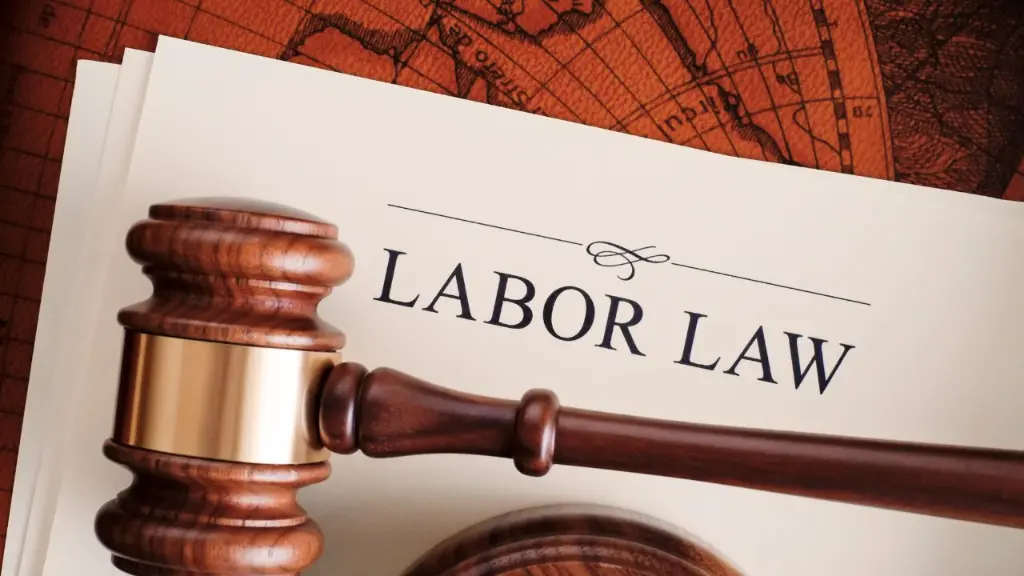The landscape of labour and social welfare legislation in India is vast and complex, rooted deeply in the nation’s history and its socio-economic evolution. To truly grasp the significance of these laws, we must take a journey through their history, understand their connection to the Indian Constitution, and appreciate their importance in safeguarding workers’ rights and welfare.
1. The Historical Evolution of Labour and Social Welfare Legislation in India:
India’s journey towards comprehensive labour legislation began in the colonial era. The first significant law, the Factories Act of 1881, was enacted by the British to regulate the working conditions in factories, especially concerning child labor.
This act laid the groundwork for subsequent legislation aimed at improving workers’ conditions which was further modified and enhanced in 1948.
Post-independence, the need for robust labour laws became more pressing. India’s Constitution, adopted in 1950, set the stage for a more structured and humane approach to labour welfare.
The Directive Principles of State Policy, enshrined in the Constitution, emphasize the state’s role in ensuring social and economic justice, leading to the formulation of various labour laws.
2. Connection with the Constitution of India:
The Indian Constitution is the cornerstone of all labour legislation in the country. The Fundamental Rights and Directive Principles of State Policy together provide a framework for labour laws. For instance:
- Article 14 Guarantees equality before the law, ensuring that all workers are treated equally, regardless of their background.
- Article 16 Prohibits discrimination on grounds of religion, race, caste, sex, or place of birth in matters of public employment.
- Article 19 Guarantees freedom of speech and expression, including the right to form associations or unions.
- Article 21 guarantees the right to life and personal liberty, which has been interpreted to include the right to livelihood and fair working conditions.
- Article 23 prohibits trafficking and forced labour.
- Article 24 bans child labour in hazardous industries.
- Articles 38, 39, and 41-43 of the Directive Principles mandate the state to secure a living wage, humane working conditions and a decent standard of life for all workers.
These constitutional provisions ensure that labour laws are not merely statutory obligations but also fundamental rights guaranteed to every citizen.
3. Importance of Labour Laws:
Why are labour laws so important? Simply put, they protect the most vulnerable sections of our society—our workers. These laws ensure fair wages, safe working conditions and social security, contributing to overall social and economic stability.
For HSE professionals and other stakeholders, understanding these laws is crucial for several reasons:
3.1 Ensuring Compliance:
Companies must comply with labour laws to avoid legal penalties and ensure smooth operations.
3.2 Promoting Safety and Health:
Labour laws often include provisions for occupational safety and health, which are essential for HSE professionals.
3.3 Enhancing Worker Morale:
Fair treatment and good working conditions boost worker morale and productivity.
3.3 Social Responsibility:
Adhering to labour laws reflects a company’s commitment to social responsibility and ethical practices.
4. Categories of Labour and Social Welfare Legislation:
Labor laws can be broadly classified in four categories.
4.1 Welfare Legislation:
Welfare laws are aimed at improving the working and living conditions of workers. These laws cover aspects such as health, safety, welfare, and working hours to ensure a better quality of life for workers.
Key legislation includes: Factory Act, The Child Labour (Prohibition and Regulation) Act, 1986, The Mines Act, 1952 etc.
4.2 Social Security Legislation:
Social security laws are designed to provide financial protection to workers in cases of illness, disability, retirement, and other contingencies. These laws ensure that workers and their families are supported during times of need.
Key legislation includes: The Employees’ State Insurance Act, The Employees’ Provident Funds and Miscellaneous Provisions Act etc.
4.3 Industrial Relations:
These laws are designed to govern the relationship between employers and employees and ensure fair practices in the workplace. They aim to protect workers from unfair treatment and to resolve disputes that may arise between employers and employees.
Key legislation includes: The Industrial Disputes Act, The Trade Unions Act etc.
4.4 Wages Legislation:
Wage laws are enacted to ensure that workers receive fair compensation for their labor. These laws set standards for minimum wages, timely payment of wages, and bonuses.
Key legislation includes: The Minimum Wages Act, The Payment of Wages Act, The Equal Remuneration Act etc.
5. List of Labour and Social Welfare Legislation in India:
1. Minimum Wages Act, 1948
2. Payment of Bonus Act, 1965
3. Equal Remuneration Act, 1976
4. Payment of Wages Act, 1936
5. Trade Unions Act, 1926
6. Industrial Employment (Standing Orders) Act, 1946
7. Industrial Disputes Act, 1947
8. Employee’s Compensation Act, 1923
9. Employees’ State Insurance Act, 1948
10. Employees’ Provident Funds and Miscellaneous Provisions Act, 1952
11. Employment Exchanges (Compulsory Notification of Vacancies) Act, 1959
12. Maternity Benefit Act, 1961
13. Payment of Gratuity Act, 1972
14. Cine-Workers Welfare Fund Act, 1981
15. Building and Other Construction Workers’ Welfare Cess Act, 1996
16. Unorganised Workers’ Social Security Act, 2008
17. Factories Act, 1948
18. Plantations Labour Act, 1951
19. Mines Act, 1952
20. Working Journalists and other Newspaper Employees (Conditions of Service) and Miscellaneous Provisions Act, 1955
21. Working Journalists (Fixation of Rates of Wages) Act, 1958
22. Motor Transport Workers Act, 1961
23. Workers (Conditions of Employment) Act, 1966
24. Contract Labour (Regulation and Abolition) Act, 1970
25. Sales Promotion Employees (Conditions of Service) Act, 1976
26. Interstate Migrant Workmen (Regulation of Employment and Conditions of Act, 1979
27. Cine-workers and Cinema Theatre Workers (Regulation of Employment) Act, 1981
28. Dock Workers (Safety, Health and welfare) Act, 1986
29. Building and Other Construction Workers (Regulation of Employment and Conditions of Service) Act, 1996.
30. Apprentices Act, 1961
31. Child and Adolescent Labour (Prohibition and Regulation) Act, 1986
32. Sexual Harassment of Women at Workplace (Prevention, Prohibition and Redressal) Act, 2013
33. Maintenance and Welfare of Parents and Senior Citizens Act, 2007
34. Street Vendors (Protection of Livelihood and Regulation of Street Vending) Act, 2014
35. Bonded Labour System (Abolition) Act, 1976
36. Children (Pledging of Labour) Act, 1933
37. Mahatma Gandhi National Rural Employment Guarantee Act, 2005 (MGNREGA)
38. Persons with Disabilities (Equal Opportunities, Protection of Rights and Full Participation) Act, 1995
39. National Trust for Welfare of Persons with Autism, Cerebral Palsy, Mental Retardation and Multiple Disabilities Act, 1999
Understanding labour and social welfare legislation in India is not just about legal compliance; it’s about recognizing the rights and dignity of workers. These laws have evolved over time to create a more just and equitable society.
As HSE professionals, being well-versed in these laws helps in promoting safer, fairer and more productive workplaces.
Disclaimer: This blog is intended for educational purposes only and should not be construed as legal advice. The information provided herein is a general overview and may not reflect the most current legal developments. For specific legal advice related to your circumstances, please consult a qualified legal professional.
Join me on Facebook, Linkedin, Youtube, WhatsApp & Telegram for the latest updates.
Click the link to read more topics on HSE Laws and Regulations






